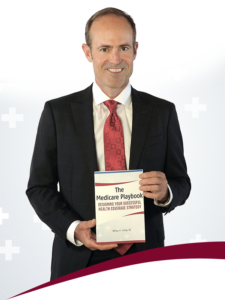May 2021
Vol. 24, Issue 5
Your Mid-Year Retirement Account Check-In
When it comes to retirement investing, there are typically two types of people. The first is the hawkeyed strategist, maintaining a vigilant watch over all accounts and assets from week to week. The second is more of a “set-it-and-forget-it” kind of investor, understanding that it’s not always profitable to be reacting to every bump in the market.
No matter which type you might be, maximizing your retirement investments requires regular maintenance.
So as we move into summer, you can think of this as your mid-year financial “oil-change”. Here are the questions that you should be asking yourself about retirement:
How long will my retirement savings last?
If retirement planning could be boiled down to just one question, it’s how long will my money last? Unfortunately, answering that question means asking a whole lot more. You’ll need to know your projected retirement income, including pensions and Social Security. You’ll also need to estimate your living expenses and healthcare costs, all of it down to the dollar.
Once you have these numbers figured out, you can determine a healthy withdrawal rate, so you’ll know exactly how much you can take out each month.
Is my withdrawal rate sustainable?
According to historical analysis, a withdrawal rate of 4-5% per year is the safest way to ensure that your money will last. The data shows that across all markets, a 4-5% withdrawal rate prevented people from running out of retirement money 90% of the time.
Of course, your own rates could be a little different. For instance, some retirees choose to withdraw more money in their early years of retirement. This makes it easier to pull off those bucket list vacations and globetrotting adventures. Then, down the line, they reduce their withdrawal rate to compensate.
Still, the 4-5% example is a good starting point for any retirement plan. Just remember to adjust your withdrawal amounts for inflation each year.
And remember, 90% is no 100%. The only way to guarantee that you’ll always have enough money in retirement is to plan for every potential outcome. That means factoring in things like long-term care, and potentially supplementing your retirement income with an annuity.
How can I understand and maximize my guaranteed income?
For most retirement accounts, there is no actual guarantee that you will be getting the amount of money that you’re planning on. The same can be said of taxes, inflation, and Social Security payments, all of which are also subject to change at any time.
One way to deal with this challenge is to back-up your retirement plan with an annuity or personal pension. This is a way of guaranteeing your assets, eliminating the risk that you will outlive that chunk of your assets.
More tips for tuning up your retirement:
- Consider your health and family history when deciding on a retirement timeline. Remember that most people tend to underestimate their lifespan, which can leave them without enough money for expenses.
- Understand your investment risk; Know what levels of risk are acceptable for each of your assets or accounts.
- Be conservative with your annual withdrawal rate, and remember to adjust for inflation each year.
- Consider an annuity or personal pension to help guarantee a portion of your assets against investment risk
Keep in touch with your Personal Benefits Manager
Even if you feel like your retirement plan is on track, it never hurts to reach out to a professional. Our services are 100% free of charge, and our mission quite simply to make things easier for our people. If you have questions about managing your retirement plans, don’t hesitate to give us a call.
You can connect with a Personal Benefits Manager by calling 888-888-888. You can also visit the MediGap Advisors Blog for professional, up-to-date guidance on saving for retirement.
To your health and wealth,


Wiley P. Long, III
President – MediGap Advisors

